Beautiful, Funny, Unique 'Untranslatable Words' That Can't Be Expressed in English

There are some things that words simply cannot express.
But languages from all around the world have developed unique words that describe specific feelings, situations or circumstances.
All of these can't be directly translated into English, and that's the beauty of it - learning specific words that other cultures have developed to express certain emotions!
Onemy favorite German untranslatable words (which is actually being used quite a lot) is:
"Fremdschämen"
Being embarrassed because of something that another person is doing. The situation might have nothing to do with you, but you're feeling embarrassed as if YOU were that person.
I've actually been in the situation of wanting to use this word in English, but there's really no translation for it so I had to describe it in a long and complicated way.
This is actually so useful as everyone has felt that way, but funny enough "fremdschämen" isn't very well known around the world and isn't mentioned in any articles about untranslatable words.
Here is a collection of untranslatable words from all over the world - some funny, some useful, some inspirational!

Duende (Spanish)
The deeply moving emotion that art can make a person feel.
Tartle (Scottish)
Hesitating to introduce someone because you have forgotten their name.
Komorebi (Japanese)
Sunlight shining briefly through the leaves of the trees.
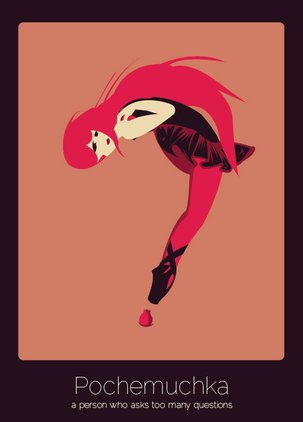
Torschlusspanik (German)
Getting stressed because opportunities are diminishing and time is running out.
Jayus (Indonesian)
When a (bad) joke is being told in such a poor way that you can't help but laugh.
Pochemuchka (Russian)
Someone who asks too many questions.
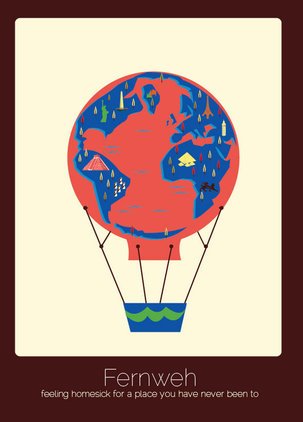
Dépaysement
Not feeling at home - feeling like a foreigner, almost an outcast.
Dapjeongneo (Korean)
When someone asks a question, but actually they've already decided which answer they'd like to hear. And now they're just waiting for you to say it.
Fernweh (German)
Feeling homesick for a destination that you've never been to. It means that you're longing to travel and visit new places!
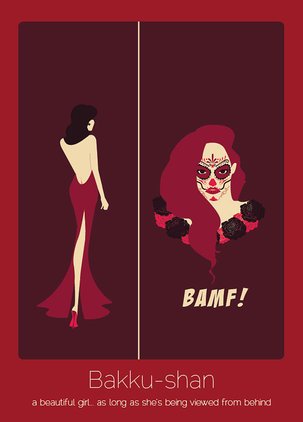
Mokita (Kivila)
A truth that everyone knows, but there's a silent agreement that no one talks about it.
Luftmensch (Yiddish)
Literally: "air person". Used to describe someone that's a daydreamer.
Bakku-shan (Japanese)
A woman that's only beautiful as long as you see her from the back.
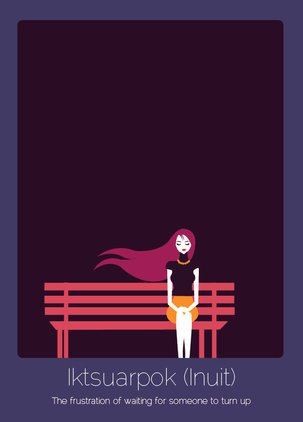
Commuovere (Italian)
When something has moved you to tears. Sometimes translated as "heartwarming".
Rire dans sa barbe (French)
Literally: to laugh into one's beard. It means to think about or remember something and then smiling or chuckling.
Iktsuarpok (inuit)
Being frustrated waiting for someone who doesn't show up.
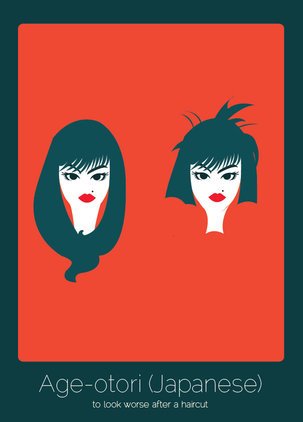
Kilig (Tagalog)
The exciting feeling of 'butterflies in your stomach'.
Friolero (Spanish)
Someone who is very sensitive to cold temperatures.
Age-otori (Japanese)
To look worse after a haircut than you did before.
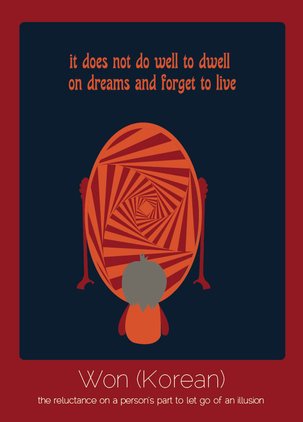
Culaccino (Italian)
The mark left on a table by a wet glass.
Wabi-Sabi (Japanese)
A concept of aesthetic (linked to buddhism) - simply but, it means "beauty in imperfections".
Won (Korean)
When someone is desperately clinging on to an illusion (and not realizing the truth).

Kyoikumama (Japanese)
A mom that pushes her kids towards academic achievements.
Forelsket (Norwegian)
The euphoric feeling when you start falling in love with someone.
Aware (Japanese)
The bittersweetness of a brief and fading moment.
Which one of these words was your favorite? Are there any other untranslatable words from different languages that you particularly like?
Images: 1, 2, 3, 4, 5, 6, 7, 8, 9, Sources: 1, 2, 3, 4
- Instagram -

© Sirwinchester
I think both German and Japanese have so many nice unique words because you can combine them easily.

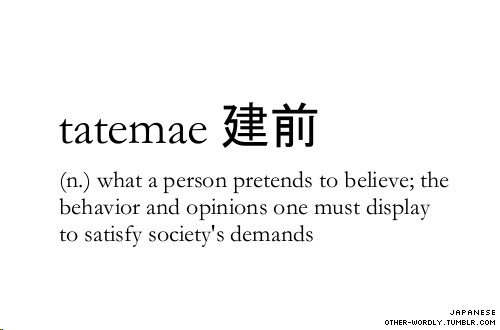
That's right. Japanese is such a fascinating language (and culture) and some of their words are so unique!
One expression is missing here: "Pole sana" (Kiswahili). It can roughly be translated to “I am sorry for your misfortune.” This applies to everything from getting chalk dust on your clothes, to tripping, dropping an item or sneezing. (Source)
Interesting! Sounds like a very useful expression. Thanks for the input!
You are welcome. :-)
Gezellig ( Dutch, Holland) Its meaning includes everything from cozy to friendly, from comfortable to relaxing, and from enjoyable to gregarious.
Interesting! Actually sounds quite similar to the german word "gesellig" which means something like sociable.
It does when you are talking about people, but not really about the atmosphere, the environment, the "feeling". :)
This post has been ranked within the top 10 most undervalued posts in the first half of Mar 19. We estimate that this post is undervalued by $16.86 as compared to a scenario in which every voter had an equal say.
See the full rankings and details in The Daily Tribune: Mar 19 - Part I. You can also read about some of our methodology, data analysis and technical details in our initial post.
If you are the author and would prefer not to receive these comments, simply reply "Stop" to this comment.
Very nice.!!
Thanks for sharing @sirwinchester
Upvote and Resteem.!!!
Thank you, I appreciate the support!
You're welcome, @sirwinchester
Really enjoyed this! Thank you :) Resteemed!
Glad to hear that! Thank you :)
These are great!
Thanks! :D
Interesting post @sirwinchester thanks for sharing.
I have one for you; it's from Welsh (I was raised in Wales) Hiraeth - There is no exact translation but it is akin to homesickness, grief and sadness all rolled in together. Have a great day
Very interesting, thank you for sharing and for your comment!
Nice one :D
Had some good laughs xD
Thanks for sharing!
Glad to hear that you enjoyed it :)
Schadenfreude ... I believe it means 'taking pleasure from someone elses misery' ..Methinks its German and it certainly does not translate easily.